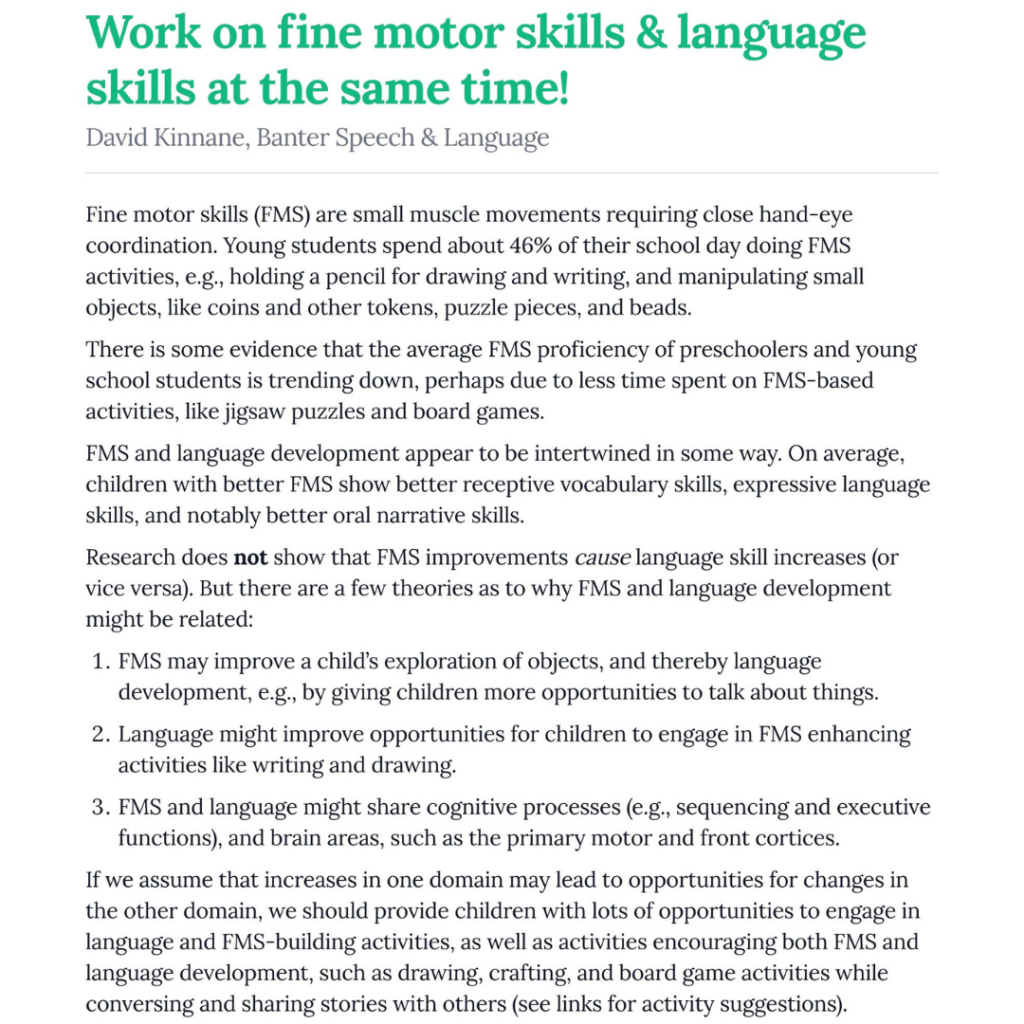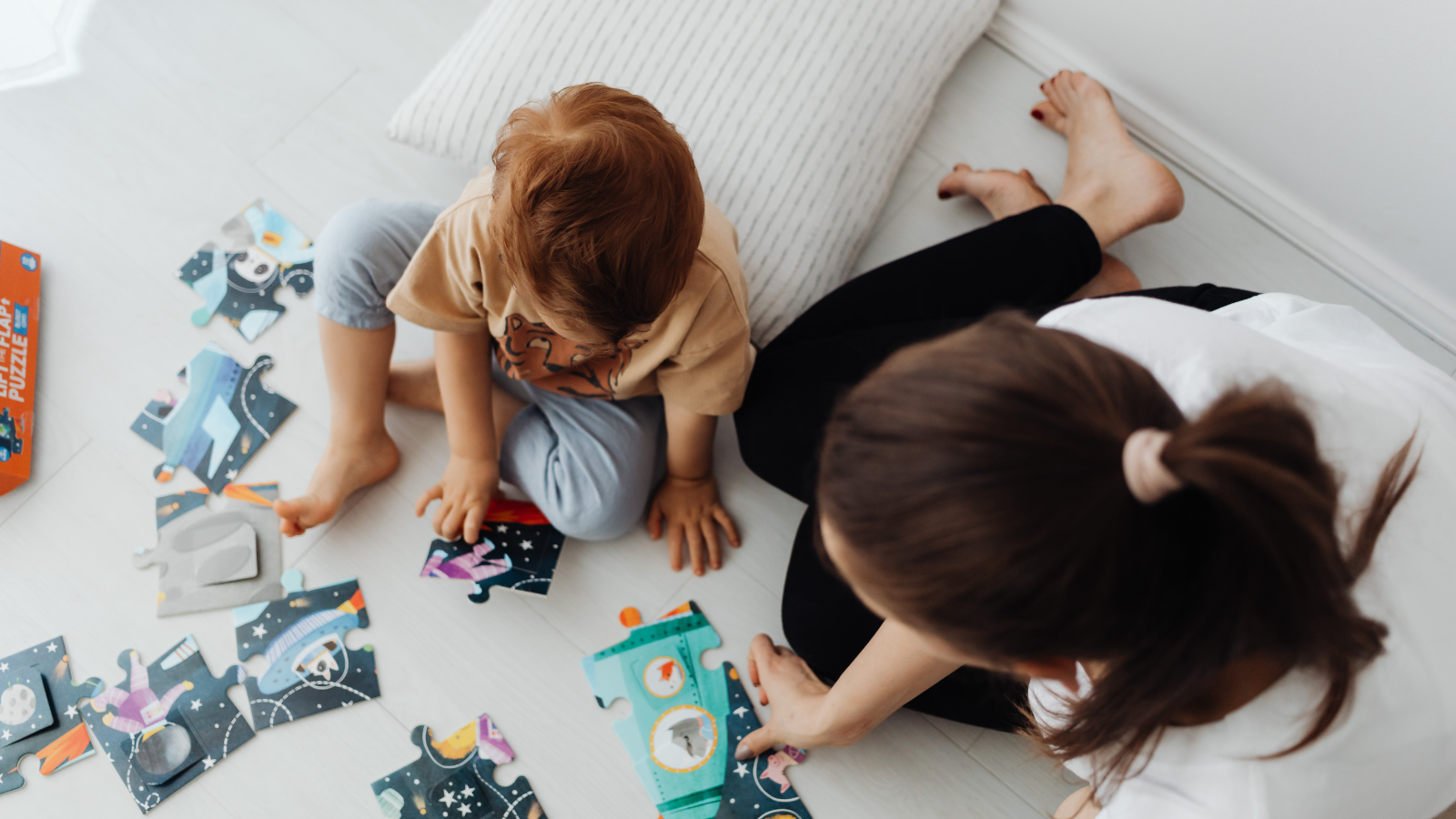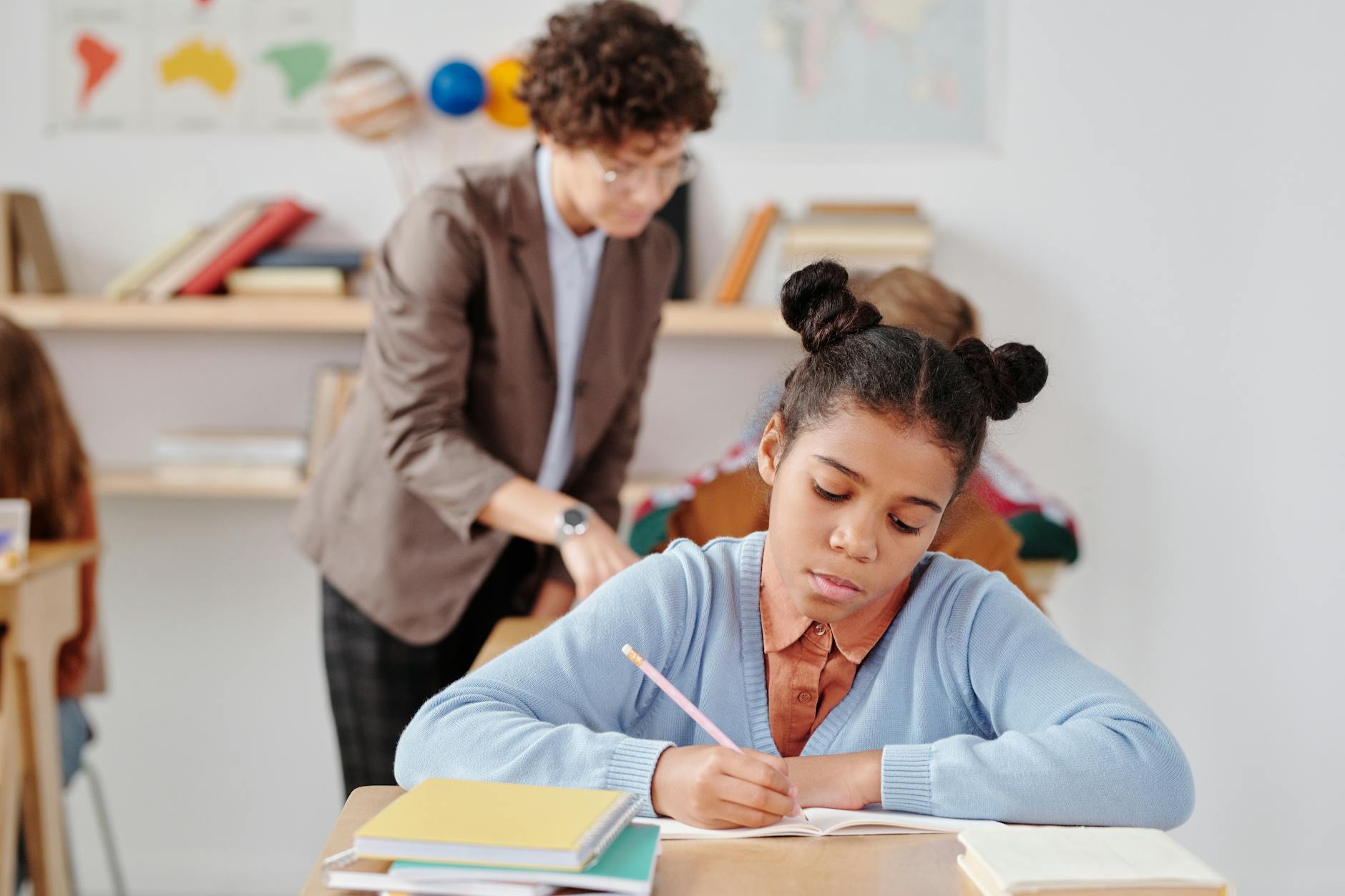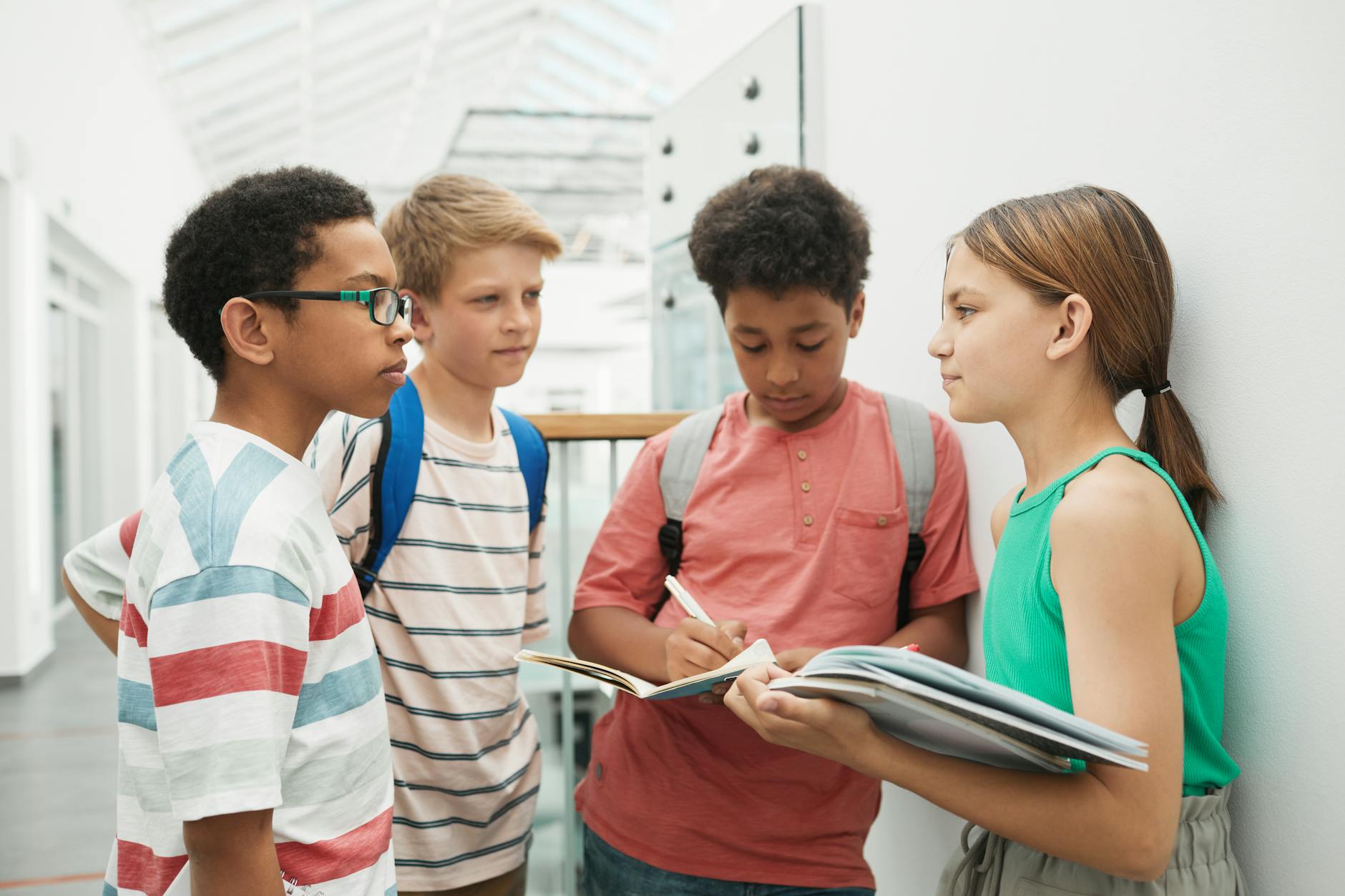Work on fine motor skills and language skills at the same time!
Fine motor skills (FMS) are small muscle movements requiring close hand-eye coordination. Young students spend about 46% of their school day doing FMS activities, e.g., holding a pencil for drawing and writing, and manipulating small objects, like coins and other tokens, puzzle pieces, and beads.
There is some evidence that the average FMS proficiency of preschoolers and young school students is trending down, perhaps due to less time spent on FMS-based activities, like jigsaw puzzles and board games.
FMS and language development appear to be intertwined in some way. On average, children with better FMS show better receptive vocabulary skills, expressive language skills, and notably better oral narrative skills.
Research does not show that FMS improvements cause language skill increases (or vice versa). But there are a few theories as to why FMS and language development might be related:
- FMS may improve a child’s exploration of objects, and thereby language development, e.g., by giving children more opportunities to talk about things.
- Language might improve opportunities for children to engage in FMS enhancing activities like writing and drawing.
- FMS and language might share cognitive processes (e.g., sequencing and executive functions), and brain areas, such as the primary motor and front cortices.
If we assume that increases in one domain may lead to opportunities for changes in the other domain, we should provide children with lots of opportunities to engage in language and FMS-building activities, as well as activities encouraging both FMS and language development, such as drawing, crafting, and board game activities while conversing and sharing stories with others (see links for activity suggestions below).
Principal source: Winter, R.E., Stoeger, H., Suggate, S.P. (2024). Fine motor skills and their link to receptive vocabulary, expressive vocabulary, and narrative language skills. First Language, 44(3), 244-263.

Practical activity suggestions:
Planning a play date for your child during the school holidays?
Come on Dad! What we can do to help our kids’ language development
25 Household Items To Boost Your Toddler’s Communication Skills
Related reading:
Are language development and motor development related?
How do babies and toddlers learn language? (Spoiler alert: it’s incredible!)
Why do babies put objects in their mouths, and does mouthing play a part in speech development?

Hi there, I’m David Kinnane.
Principal Speech Pathologist, Banter Speech & Language
Our talented team of certified practising speech pathologists provide unhurried, personalised and evidence-based speech pathology care to children and adults in the Inner West of Sydney and beyond, both in our clinic and via telehealth.








